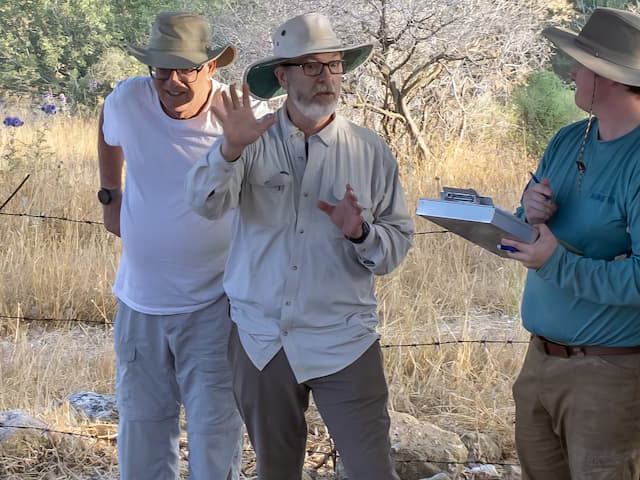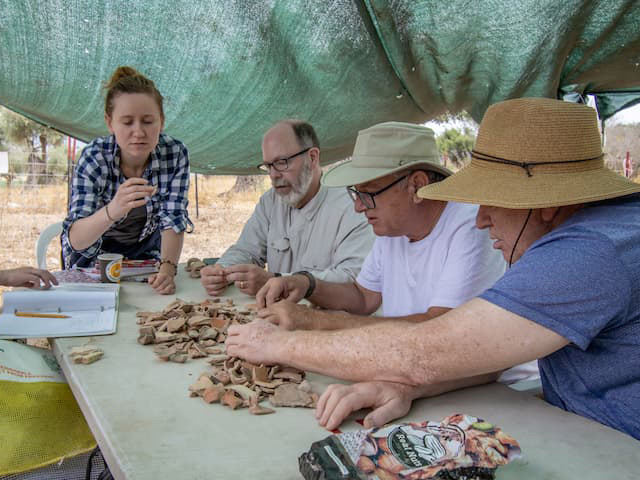
Last summer, Samford University professor James Strange found that the ancient Jewish village of Shikhin in Israel produced fine pottery. On Nov. 16, Strange will present this newfound discovery with a paper he co-authored with Motti Aviam and Tom McCullough at the annual American Society for Overseas Research meeting in Chicago.
Aviam, a professor at Kinneret Academic College in Israel, and McCollough, of Coastal Carolina University (emeritus of Centre College), direct the Shikhin Excavation Project with Strange. Volunteers from all walks of life make up the team, including students from Samford, the University of South Florida, Colorado College, Central Christian College of the Bible, Randolph-Macon College and others.
"This conference is an annual gathering of archaeologists of the Ancient Near East and laypeople interested in archaeology," Strange said. "Samford is an institutional member of ASOR, which allows students who wish to dig in Israel access to scholarship funds.

In 2019, the Samford team began excavating a discard pile from a potter's workshop. "The space was only one and a half by two meters in the area (around 32 square feet), but it has taken us three seasons to dig it, and we're not finished," Strange said.
An Israeli geologist confirmed the fine pottery they found was made from local clay.
"I remember seeing this pottery at a dig in the city of Sepphoris back in the 1990s," Strange said. "Our fine ware expert could tell the difference between the imported stuff and what he called 'local imitation redware'.
The Charles Jackson Granade and Elizabeth Donald Granade Professor of New Testament in the Department of Biblical and Religious Studies continued by saying, "Back then, we didn't know where the imitation ware was made. Now we're growing confident that we're digging one of the production centers, about a thirty-minute walk from Sepphoris."
Village potters used local clay but refined it and coated it with a shiny red or black "slip," similar to a glaze. The finished products resembled fine tableware called terra sigillata, imported from the eastern part of the Roman Republic and then the Roman Empire. Terra sigillata means "signed earth" and refers to stamps that some potters impressed on the undersides of plates and bowls. Imported forms were often stamped with crosses beginning in the fifth century.
"We haven't found stamps on the local stuff," Strange said. "We don't expect to find them. But if we do, we'll be even more excited."
So far, the only stamp impression found at Shikhin appeared on the handle of a wine amphora from Rhodes. The Greek reads, "During the administration of Aristōn in the month of Panamos," dating between 167 and 165 B.C.
Shikhin's potters made imitation wares between the late first and early second century A.D. Workshops also made more than vessels for serving and eating food. The fine wares include ceramic oil lamps and incense shovels.
"Incense shovels only look like shovels," explains Strange. "They were most likely used as incense burners." Incense was placed on hot coals in the "blade" or pan of the shovel.
Bronze examples have been found in many sites, not just those with Jewish populations. So far, however, ceramic incense shovels are known only from Shikhin and Sepphoris.
Strange says the samples they found will be sent for more detailed analysis.
"Regarding the conflict between Hamas and Israel, I am hopeful that the situation will be resolved before this year's dig in June," Strange said. "Students interested in participating in this project should contact me at jrstrang@samford.edu."
